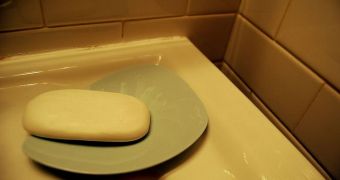Investigators have established in a new research that eliminating physical residues – such as when someone washes their hands – also contribute to eliminating mental residues, purifying the mind through some abstract connection.
University of Michigan (U-M) investigators saw that people who washed their hands with soap were more likely to feel that they've also been cleansed by doubt, guilt and other similar feelings in the process. This link puzzled experts, who decided to investigate further.
Department of Psychology graduate student Spike W.S. Lee and Institute for Social Research researh professor Norbert Schwarz, both at U-M, were responsible for the new study. They learned that even religious rituals have sense from a psychological perspective.
In a series of experiments, the level of cleanliness in a room proved to be an influential factor in the way participants tended to judge the mistakes of others. When making their decision in a clean room, the test subjects were more likely to be less strict, whereas the reverse was true in a dirty environment.
“Cleansing is about the removal of residues. [By cleaning their bodies], people can rid themselves of a sense of immorality, lucky or unlucky feelings, or doubt about a decision,” Lee explains. His team also carried out a meta-analysis of other investigations dealing with the same topic.
“The bodily experience of removing physical residues can provide the basis of removing more abstract mental residues,” he explains, saying that rituals such as baptism are meant to do just that.
Details of the new investigation were published in the latest issue of the Association for Psychological Science's (APS) new scientific journal Current Directions. The study shows that washing contributes to a human tendency called choice justification.
This occurs when people are in doubt about a choice they have to make. After deciding, they tend to view their selection more favorably than it merits, while regarding the other option as less desirable. In effect, people are justifying their choices to each other.
In the experiments, clean people were very likely to think of themselves as being more moral than those they were judging. This did not happen if the people passing judgment were themselves dirty.
“Cleansing removes the residual influence of earlier experience,” Lee says. However, he warns that these conclusions are not meant to indicate that people who wash more often are happier than their peers.

 14 DAY TRIAL //
14 DAY TRIAL //